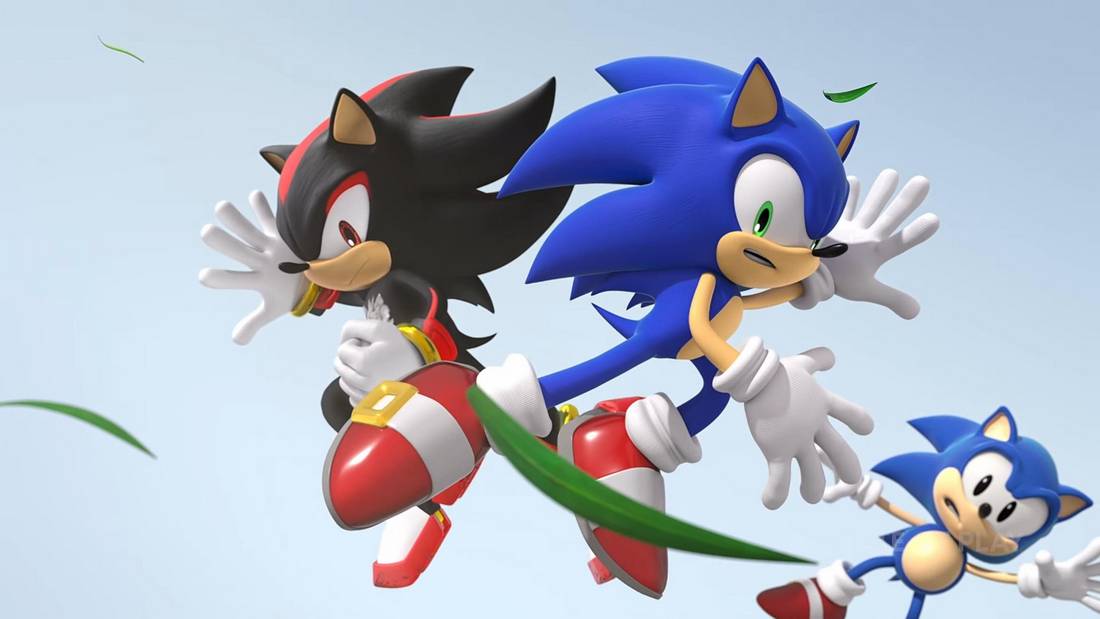SEGA Trademark Fuels Shadow the Hedgehog Revival Hopes Amidst ‘Sonic Adventure’ Remake Rejection
Popular Now
 Genshin Impact
Genshin Impact
 Geometry Dash
Geometry Dash
 Rust
Rust
 Stumble Guys
Stumble Guys
 God of War Ragnarök
God of War Ragnarök
 Free Fire Max
Free Fire Max
 EA SPORT FC 25
EA SPORT FC 25
 Roblox
Roblox
 Fall Guys
Fall Guys
 Sonic the Hedgehog™ Classic
Sonic the Hedgehog™ Classic 
In a period of significant strategic clarity from SEGA’s flagship Sonic Team, a new, cryptic trademark filing for Shadow the Hedgehog has ignited massive speculation amongst fans, directly contrasting the recent, definitive statement by Sonic Team head Takashi Iizuka that remakes of the beloved Sonic Adventure titles are not a priority. This dynamic tension between the stated corporate focus—on creating new, forward-looking experiences—and the continued attention given to the ultimate life form has generated considerable buzz and consumer interest in the franchise’s future, a crucial factor for high CPC traffic.
Iizuka’s Stance: New Games Over Nostalgia Rebuilds
Sonic Team boss Takashi Iizuka recently reaffirmed the studio’s commitment to advancing the Sonic the Hedgehog brand with entirely new experiences. When questioned about the persistent fan demand for remakes of Sonic Adventure and Sonic Adventure 2, Iizuka gave a clear and pragmatic response that sets the current development roadmap for the Blue Blur.
- Resource Allocation: Iizuka stated that the effort required to modernize the 1990s and early 2000s 3D titles to meet contemporary gaming standards would be nearly equivalent to building a brand-new, cutting-edge game from scratch.
- Strategic Priority: He concluded that dedicating time and energy to a new title that offers a “new experience to the players” is a superior use of development resources than revisiting and overhauling already-experienced content.
- Forward Momentum: This strategy aligns with the recent critical and commercial success of new-era titles, which leverage modern hardware to create “richer, more complex, more interesting worlds,” rather than being bogged down by legacy gameplay design.
The message is unequivocal: fans should temper expectations for an Adventure remake, as Sonic Team is focused on innovation and establishing a new “Golden Era” for the franchise.
The Shadow Trademark: An ‘Ultimate Life Form’ Resurgence
Less than a week after Iizuka’s comments, SEGA filed a new trademark for Shadow the Hedgehog in Japan. While trademarks are often routine for brand protection and merchandise licensing, this particular filing has sparked immediate and intense speculation across the video game news and fan communities for several compelling reasons:
- Explicit Software Categories: The trademark is filed under multiple classes, crucially including Class 9 (Game Program) and Class 41 (Education/Entertainment). The filing text explicitly references “computer programs downloadable via the internet” and “content for home video game consoles,” indicating a strong focus on a new digital gaming product.
- The ‘Year of Shadow’: The filing comes on the heels of the successful Year of Shadow campaign in 2024, which featured the character prominently in the highly praised Sonic x Shadow Generations and his blockbuster, Keanu Reeves-voiced appearance in Sonic the Hedgehog 3. This massive multimedia marketability suggests that SEGA is keen to capitalize on his soaring popularity.
- A Remake Loophole?: Fans quickly noted that Shadow’s 2005 self-titled spin-off, Shadow the Hedgehog, is due for its 20th anniversary in 2025/2026. While Iizuka rejected an Adventure remake, a complete overhaul of the cult-classic, highly divisive Shadow game—which featured controversial gun mechanics and a morally ambiguous story—could be argued as a different kind of project. Remaking a critically flawed title to realize its true potential is an entirely different creative challenge than perfecting an already beloved game.
This filing strongly suggests that even if a full Sonic Adventure 3 or a direct Adventure remake is off the table for the mainline team, SEGA sees high-value commercial potential in a dedicated project for its popular anti-hero. The question is whether this will be a direct sequel, a complete ground-up reboot of the 2005 game, or an entirely new spin-off using the modern Sonic engine.
Market Analysis: Strategic Marketing and the CPC Potential
The dual narrative currently unfolding is a masterclass in strategic brand management. By publicly dismissing the Adventure remakes, SEGA manages fan expectations for its core development team, allowing them to focus on innovation and reducing the risk of a “no-win” remake scenario where any changes would invariably disappoint a segment of the established fanbase. At the same time, the Shadow the Hedgehog trademark keeps the nostalgia-driven and high-engagement segment of the audience energized.
The character of Shadow has proven to be an exceptionally strong monetization asset. His “edgy” appeal translates well into both merchandise and a unique gameplay identity that can deviate from the traditional Sonic formula, potentially tapping into the profitable action-adventure and third-person shooter genres that the 2005 game briefly explored. A dedicated, quality Shadow spin-off is perceived as a calculated, high-reward move with significant brand uplift and premium keyword value.
The industry waits with bated breath for SEGA’s official announcement. Whether this trademark leads to a complete reboot of the 2005 experience or a brand-new, character-driven adventure, it is clear that the Ultimate Life Form’s moment in the spotlight is far from over.








